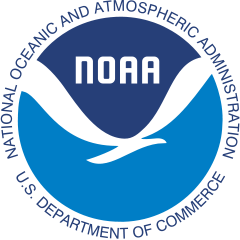June 18th, 2013

For “sustained pioneering work on aerosols”, GFDL Scientist Paul Ginoux is a recipient of American Geophysical Union’s (AGU) Atmospheric Sciences Ascent Award for 2013. Established last year, the award recognizes exceptional mid-career scientists in atmospheric and climate sciences, who demonstrate excellence in research, as well as leadership in his or her field. The award will be formally presented to Dr. Ginoux at AGU’s Fall Meeting.
As the most abundant aerosol in the Earth’s atmosphere, dust affects climate, air quality and even ocean biogeochemistry. Dr. Ginoux’s research and leadership in this field have made him the world’s foremost expert on the modeling of dust aerosols, their emissions, atmospheric transport, and physical properties. He has helped unravel the mechanisms of dust lifting and entrainment into the atmosphere, and shed light on properties that characterize dust emissions. To achieve this, Dr. Ginoux meticulously extracts observational data from satellites, aircraft, remote sensing technology, and ground based networks. He applies this knowledge to create robust representations of dust aerosols in climate models, helping to make GFDL’s models one of the most complex and accurate in simulating dust.
Dr. Ginoux creates high-resolution maps of dust sources, and his research has provided important insights about the contributions of anthropogenic activity – primarily agricultural – to atmospheric concentrations of dust. He has also created a dust emissions inventory for evaluating the effects of dust on climate, vegetation, and ocean ecosystems – an invaluable resource for the scientific community, the National Weather Service, the Air Force, and others.
Originally from Belgium, Dr. Ginoux has been at GFDL since 2003, and he has been teaching courses at Princeton University in the Atmospheric and Oceanic Sciences Program, as well as the Department of Civil and Environmental Engineering, for the past decade. He has over 70 publications, including several papers with more than 400 citations.


